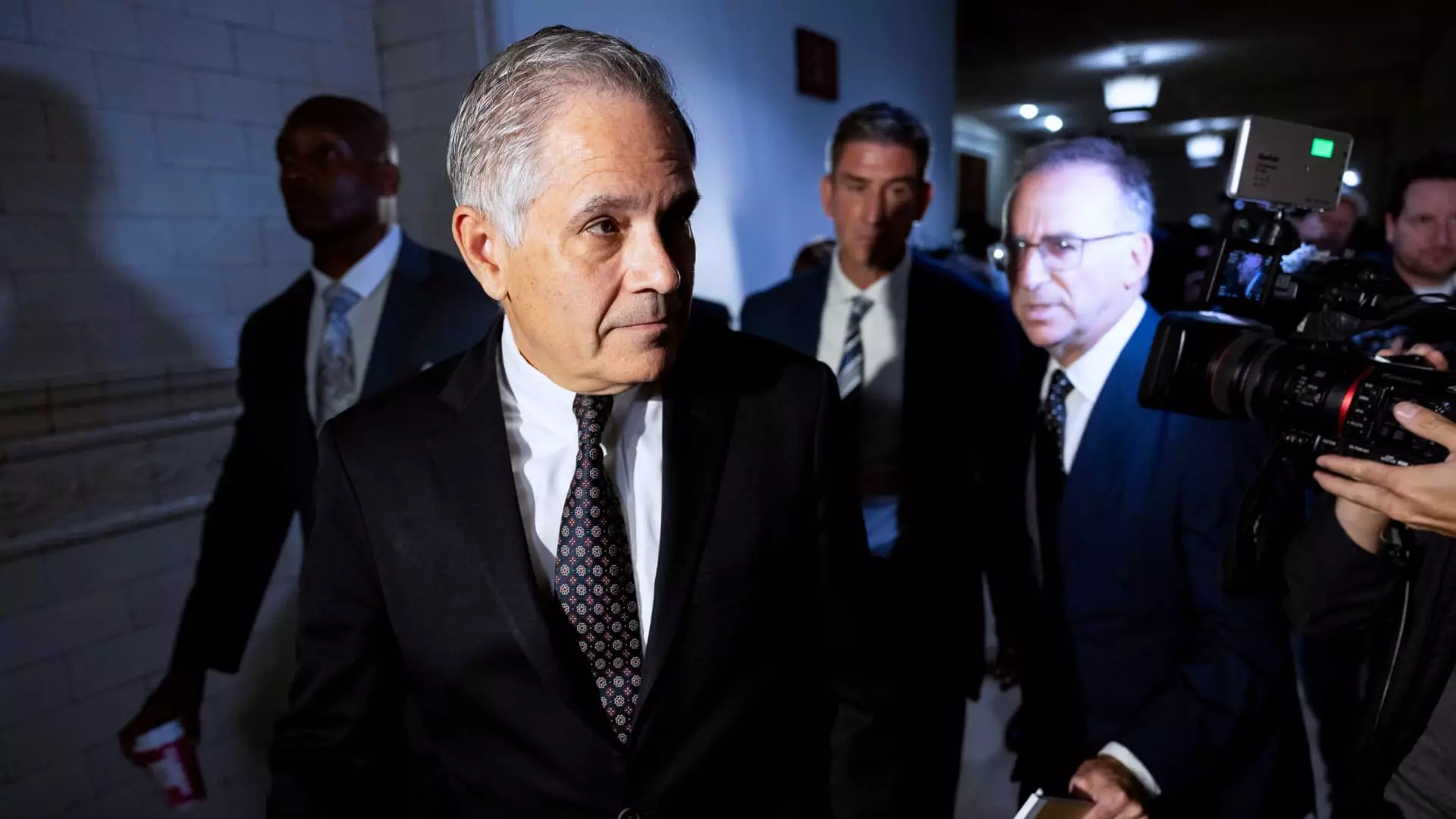The recent court testimony from Philadelphia District Attorney Larry Krasner has ignited a fierce debate surrounding Tesla CEO Elon Musk and his political action committee, America PAC, which is accused of orchestrating an “illegal” lottery by giving away $1 million to registered voters. This contentious initiative primarily targets swing states, including Pennsylvania, and has positioned itself in the political arena amid the upcoming presidential election. Krasner’s assertions suggest that both Musk and America PAC are fully aware of the legal boundaries they are allegedly crossing. His claim of “guilty knowledge” raises critical questions about the ethical standards of political fundraising and the responsibility of influential individuals in the political sphere.
During the court hearing, Krasner did not pull any punches, labeling the endeavor as a “scam” and “grift,” asserting that the promotion violates fundamental legal principles associated with consumer protection and lotteries. His insistence that this is a direct violation of the law challenges the perceived invulnerability of wealthy political contributors who utilize their resources to exert influence over democratic processes. The manipulation of voter incentives can compromise the electoral landscape, leading to a distorted version of democratic engagement.
Krasner’s testimony also sparked a broader conversation about First Amendment rights and their limits. While freedom of speech and political expression are cornerstones of American democracy, Krasner’s argument reinforces the notion that such freedoms do not absolve individuals from the legal repercussions of their actions. By stating, “There is no First Amendment right to commit crimes,” Krasner draws a stark line between lawful political engagement and illegal manipulative tactics. This sentiment could resonate with many who increasingly view the intersection of wealth and politics as a source of ethical concern.
The back-and-forth between the attorneys serves to underline the contentious nature of the case. Attorney Chris Gober, representing America PAC, asserted that the promotional giveaway does not constitute an illegal lottery, framing it instead as a contractual agreement that allows participants to become spokespersons for the PAC. His characterization of the process as devoid of a true “prize” reflects a defensive strategy that attempts to circumvent the lottery laws associated with the initiative.
This issue is particularly troubling given Musk’s stature as a billionaire entrepreneur and public figure. His significant financial leverage allows for undue influence in political dialogues, challenging the integrity of the electoral process. The situation introduces ethical dilemmas surrounding the extent to which wealth can be utilized to sway electoral results. America PAC’s strategy of incentivizing voter participation through substantial monetary rewards raises concerns about the genuine motivations behind voter turnout efforts.
Krasner’s examination of whether the selection of recipients was indeed random introduces critical scrutiny over the genuine randomness of the process. His assertion that evidence suggests a predetermined selection undermines the credibility of the entire initiative. The legal proceedings could serve as a pivotal moment in defining the boundaries of acceptable political practices among PACs and wealthy individuals who wield influence, particularly as such bodies increasingly adopt unconventional methods to reach voters.
As this unfolding legal drama progresses, it raises significant implications for the political landscape leading up to the election. With every moment of testimony aired, public scrutiny will intensify, potentially influencing voter perceptions and behaviors. The ramifications extend beyond just this case; they could set important precedents regarding how PACs operate and how they are regulated.
The case against Elon Musk’s America PAC highlights the need for stringent oversight in political fundraising practices. As the dialogue on ethical political engagement evolves, stakeholders must grapple with the balance between individual freedoms and the integrity of democracy. This court case could serve as a critical battleground in redefining the limits of political contributions and the responsibilities of those who wield substantial economic power in shaping electoral outcomes. Ultimately, it is essential to ensure that democratic processes remain untarnished by unethical practices, solidifying the integrity of the electoral system for generations to come.


Leave a Reply